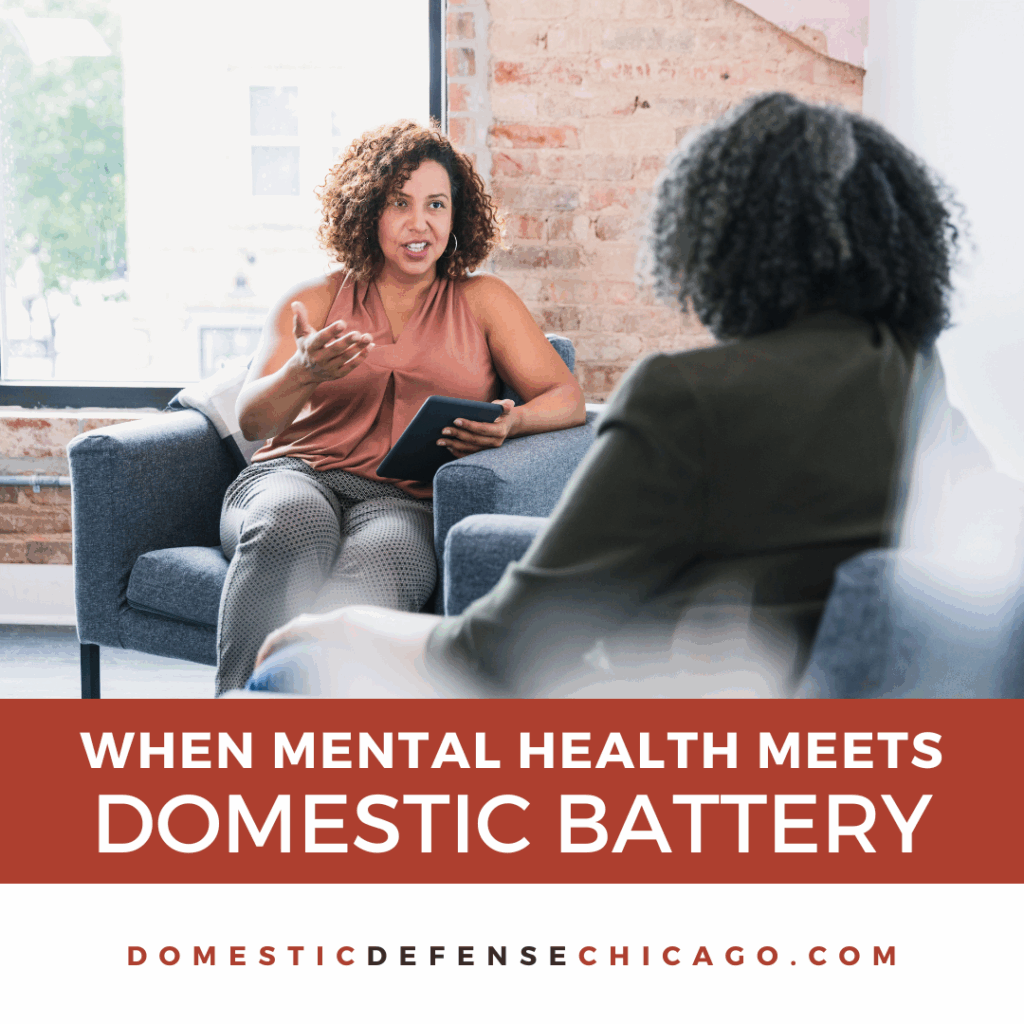Domestic battery cases are often portrayed as straightforward: one person is accused, and the court decides guilt or innocence based on physical evidence and testimony. But reality is rarely that simple—especially when mental health plays a role.
Mental health conditions can affect how an incident unfolds, how it’s remembered, and how it’s interpreted by law enforcement, prosecutors, and the court. While mental health issues may help explain certain behaviors, they do not automatically excuse criminal charges. That’s why working with an attorney is essential to pursuing the best possible outcome—even though no lawyer can guarantee what that outcome will be.
How Mental Health Can Affect a Case
Mental health can influence a domestic battery case in several ways:
-
Perception of events – Anxiety, PTSD, or other conditions may impact how both parties interpret actions or words.
-
Behavior during an incident – Certain disorders can heighten emotional responses, impulsivity, or stress reactions.
-
Memory and recall – Depression, trauma, or medication can affect how clearly events are remembered.
-
Communication with police – A person in crisis may appear uncooperative or evasive, even if that’s not the intent.
Courts often focus on the actions that occurred, not the underlying causes—unless those causes are clearly documented and explained.
Risks of Discussing Mental Health Without Legal Guidance
If you bring up mental health during a police interview or in court without legal counsel, it can be misunderstood or misused:
-
Prosecutors might frame it as evidence of instability.
-
It could unintentionally suggest you’re admitting fault.
-
Statements made without context may be taken at face value.
An attorney can help present mental health information in a way that is relevant, properly supported, and respectful of privacy.
The Role of Documentation
If mental health is part of your case, documentation can make a difference:
-
Medical records confirming diagnosis and treatment history
-
Therapist or psychiatrist notes outlining ongoing care
-
Medication history showing compliance with treatment
-
Expert testimony from qualified professionals
This evidence doesn’t guarantee a favorable result, but it can help create a fuller, more accurate picture of the circumstances.
How Mental Health May Influence Court Decisions
While mental health is not a legal defense to domestic battery in Illinois, it can be relevant to:
-
Sentencing – Courts may consider it when deciding between incarceration and treatment-focused alternatives.
-
Diversion programs – In certain cases, mental health treatment programs can be part of a resolution.
-
Mitigation – Demonstrating that you’re addressing your condition can support arguments for leniency.
The Illinois Mental Health Court system provides specialized handling for eligible defendants, which you can read about through the Illinois Courts’ problem-solving courts resource.
Avoiding the “One-Size-Fits-All” Approach
Every mental health condition is different, and every domestic battery case is unique. Strategies that help one person may not work for another. This is why early involvement of an attorney is critical—they can coordinate with mental health professionals and decide how, if at all, your condition should be part of the defense.
How an Attorney Can Help
No attorney can promise that presenting mental health evidence will change the verdict or sentence. However, they can:
-
Determine whether it’s beneficial to bring mental health into the case
-
Protect sensitive medical information from unnecessary disclosure
-
Coordinate expert testimony to explain behaviors or reactions
-
Use treatment progress as part of a mitigation strategy
By integrating legal knowledge with an understanding of mental health dynamics, your attorney can help ensure your situation is represented fairly and fully.
Mental health and domestic battery cases intersect in complex ways. Addressing this intersection requires careful planning, professional guidance, and a strategy tailored to your specific circumstances. The goal isn’t to excuse what happened, but to present the truth in a way that gives you the strongest possible defense under the law.
Do You Need to Talk to an Attorney About Domestic Battery Defense?
If you need to talk to a domestic battery defense attorney in Illinois, we’re here to help. Call us at 847-920-4540 now – we’ll be happy to give you a free consultation and talk to you about your options.







Leave A Comment
You must be logged in to post a comment.